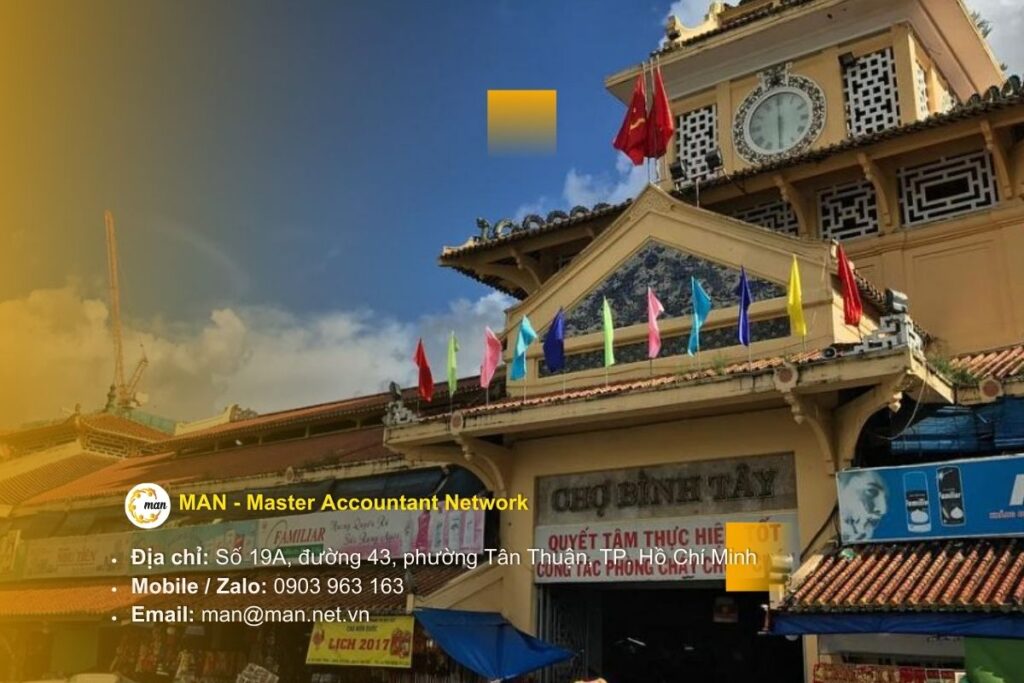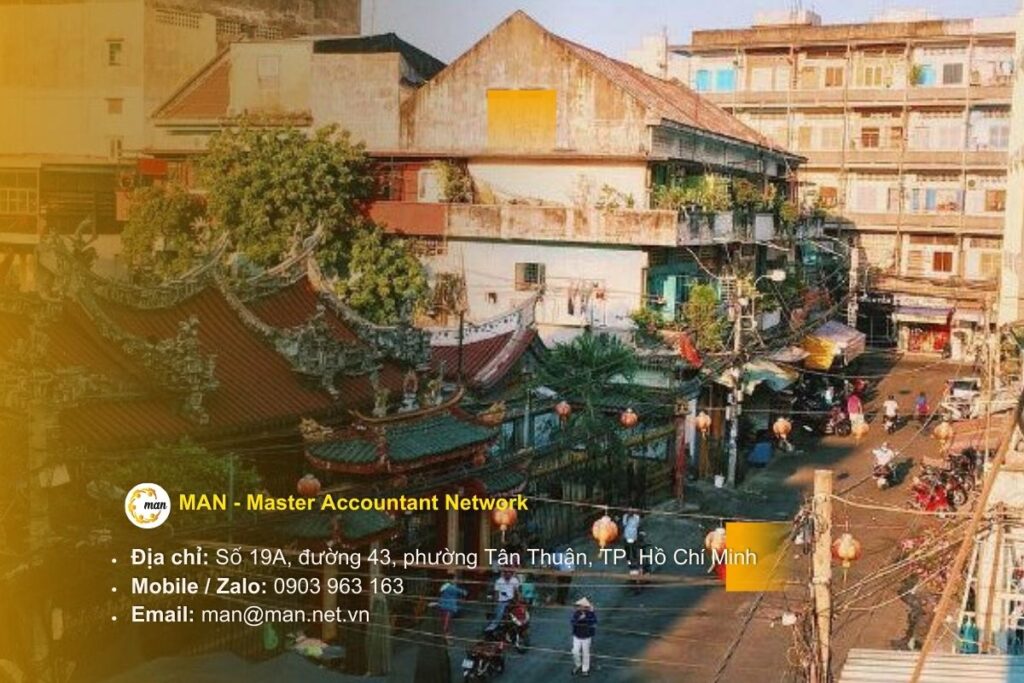Determining whether a business has arisen affiliate transactions or not? The most important thing is to clarify the relationship and transaction, if it falls under one of the cases prescribed in Decree 132/2020/ND-CP, if it satisfies 02 conditions, the enterprise has related party transactions.
- Have a affiliated relationship, Transactions between related parties
- There are transactions with related parties.
Identifying enterprises with related-party transactions is not only a legal requirement under Decree 132/2020/ND-CP, but also an important step to prevent tax risks and ensure financial transparency.
The article below will provide a comprehensive and detailed perspective to determine whether a business has related-party transactions.
What is related party transaction?
Incurring related party transactions is when an enterprise conducts economic, commercial or financial activities with a related party as prescribed in Decree 132/2020/ND-CP. These related parties may come from capital ownership, management and operation rights, loan-debt relationships, guarantees or mutual dependence on a third party.
Specifically, according to Clause 1, Article 5 of Decree 132/2020/ND-CP, the parties having a relationship arising from related party transactions are the parties having a relationship falling into one of the following cases:
“A party directly or indirectly participates in the management, control, capital contribution or investment of the other party.”
For example: Company A owns 40% of charter capital of Company B and at the same time appoints an Executive Director to directly manage B's business activities.
“Parties directly or indirectly under the management, control, capital contribution or investment of another party.”
For example: Company B and Company C are both owned by Company A with more than 30% of capital and have the right to appoint members of the Board of Directors.
Although B and C do not own each other, because both are under the control of Company A, any purchase, service or loan transaction between B and C is considered an affiliated transaction, even though there is no direct ownership between B and C.
Source: Law Library
Criteria for identifying businesses with related transactions
Pursuant to Clause 2, Article 5 Decree 132/2020/ND-CPIf an enterprise falls into one of the following cases, it is considered to have an affiliated relationship that generates affiliated transactions. Specifically as follows:

- (I) An enterprise directly or indirectly holds 25% of the capital contribution of the owner of the other enterprise;
- (II) Both enterprises have at least 25% of owner's equity held directly or indirectly by a third party;
- (III) An enterprise is the largest shareholder in terms of equity capital of the other enterprise, directly or indirectly holding at least 10% of the total shares of the other enterprise;
- (IV) An enterprise guarantees or lends capital to another enterprise in any form (including loans from third parties secured by the financial resources of the related party and financial transactions of a similar nature) on the condition that the loan amount is at least equal to 25% of contributed capital over 50% of the total value of medium- and long-term debts of the borrowing enterprise;
- (V) An enterprise appoints a member of the executive board or controlling authority of another enterprise provided that the number of members appointed by the first enterprise is greater than 50% of the total number of members of the executive board or controlling authority of the second enterprise, or a member appointed by the first enterprise has the right to decide on the financial policies or business operations of the second enterprise;
- (VI) Two enterprises have more than 50% members of the board of directors or have one member of the board of directors with the right to decide on financial policies or business operations appointed by a third party;
- (VII) Relationships: Two enterprises are operated or controlled in terms of personnel, finance and business operations by individuals in one of the following relationships: husband, wife, biological parents, adoptive parents, step-father, step-mother, parents-in-law, biological children, adopted children, step-children of the wife or husband, daughter-in-law, son-in-law; full siblings, half-siblings, full siblings, brother-in-law, sister-in-law of the same parents or half-siblings, same mother but different father; paternal grandparents, maternal grandparents, paternal grandchildren, maternal grandchildren; paternal aunts, paternal uncles, paternal uncles, paternal uncles and paternal nieces and nephews.
- (VIII)Two business establishments have a head office and permanent establishment relationship or are both permanent establishments of a foreign organization or individual;
- (IX) One or more enterprises are controlled by an individual through the individual's capital contribution to the enterprise or directly participates in the operation of the enterprise;
- (X) Other cases in which an enterprise is subject to the actual management and control of the other enterprise's business operations;
- (XI) The enterprise has transactions of transferring, receiving transfers, and capital contributions of at least 251,0 ...
Which transactions arise as related-party transactions between enterprises that are within the scope of the law?
Pursuant to Article 2 of Decree 132/2020/ND-CP, the regulations on transactions arising from related-party transactions within the scope of regulation are as follows:

- Transactions of purchase, sale, exchange, lease, loan, transfer, assignment of goods, provision of services;
- Loan transactions – lending, financial services, financial guarantees and other financial instruments;
- Transfer of tangible assets, intangible assets and agreements to buy, sell, and share resources such as assets, capital, labor, and share costs between related parties.
Therefore, if an enterprise correctly identifies the related relationship and transaction, the enterprise will have related transactions.
Legal basis for related party transactions
To properly carry out the process of determining the relationship, enterprises need to rely on the current legal system. This is an important foundation to help enterprises have a basis when preparing documents, declaring related-party transactions and proving transparency in business activities.

Decree 132/2020/ND-CP
Decree 132/2020/ND-CP of the Government regulates tax management for enterprises with related-party transactions. Decree 132/2020/ND-CP was issued to update and complete the legal framework for transfer pricing control in Vietnam in order to increase tax transparency, fairness and limit tax base erosion.
This document provides details on:
- Criteria for determining linkage relationships.
- Obligation to declare information on related transactions.
- Transfer pricing documents (Local file, Master file, Country-by-Country report).
The central objective of Decree 132/2020/ND-CP is to establish a clear and comprehensive legal framework for tax management arising from related-party transactions. First of all, Decree 132/2020/ND-CP requires that the determination of transaction prices must be based on economic substance, not just legal form, ensuring that when related-party transactions arise, they are fairly compared with independent transactions.
Decree 132/2020/ND-CP provides comprehensive regulations on tax management for enterprises with arising affiliate transactions.
Principles of applying tax management to enterprises with related party transactions
According to Article 3 Decree 132/2020/ND-CP The regulations on principles for applying tax management to enterprises with related-party transactions are:
- Taxpayers that engage in related-party transactions must exclude factors arising from related-party relationships, in order to ensure that the declaration and determination of tax obligations for these transactions are made equivalent to independent transactions with the same conditions.
- Tax authorities shall manage, inspect and examine prices when related-party transactions arise based on the principle of independent transactions, and at the same time evaluate according to the nature of business activities. The value of the transaction is determined based on the actual results from production and business activities, thereby deciding the corresponding tax obligations of the taxpayer.
- Not recognizing related-party transactions that do not follow the principle of independent transactions that reduce the tax obligations of enterprises to the state budget and adjusting the price of such related-party transactions to correctly determine the tax obligations prescribed in Decree 132/2020/ND-CP
Procedure for checking whether a business has related party transactions or not
In reality, many businesses often have difficulty determining whether they have related-party transactions or not. To easily review and systematize information, the following checklist helps businesses to check and monitor each step, from ownership structure to financial transactions and special agreements.
Board: Procedure for checking businesses that have related party transactions
| Step | Determining criteria | Required documents |
| Capital ownership review | Capital contribution ratio over 25%, parent-subsidiary company relationship, cross-ownership. | Business registration certificate, list of shareholders, transfer contract, shareholder register. |
| Check loan and guarantee contracts | Loan or guarantee from group company or related party. | Loan agreement, Appendix, bank documents, approval minutes. |
| Consider management and operation relationships | With the Board of Directors, Management Board, management service contract. | Appointment decision, labor contract, management contract, meeting minutes. |
| Review of internal service purchase and sale transactions | Transaction of goods, services, and assets between companies in the group. | Contract, VAT invoice, warehouse receipt and delivery note. |
| Special deal review | Insurance contracts (IP), cost sharing, research and development and internal management services. | IP contracts, cost reports, sharing agreements, technical documents |
The above table not only helps businesses identify whether they have related-party transactions or not, but also prevents legal risks and enhances proactive tax management. This is the foundation for preparing documents to determine the price of related-party transactions in compliance with Decree 132/2020/ND-CP.
Determining the relationship and transaction belongs to one of the above cases. When correctly identified and satisfying the regulations, the enterprise has related transactions.
Conclude
Early identification of whether a business has related-party transactions or not plays a decisive role in tax risk management. If missed, the business not only faces the risk of being charged and fined, but also being classified in a high-risk group, affecting its reputation with tax authorities, banks and investors. In addition, additional compliance and auditing costs will also increase significantly, putting pressure on cash flow and business operations.
Proactively reviewing and documenting not only helps businesses comply with legal regulations, but also creates a foundation for long-term sustainable and transparent development.
For specific advice and support, businesses please contact MAN – Master Accountant Network
Contact information MAN – Master Accountant Network
- Address: 19A, Street 43, Binh Thuan Ward, District 7, Ho Chi Minh City.
- Mobile/ Zalo: +84 (0) 903 428 622 (Ms. Ngan)
- E-mail: nguyenthikimngan@man.net.vn
Editorial Board: MAN – Master Accountant Network




